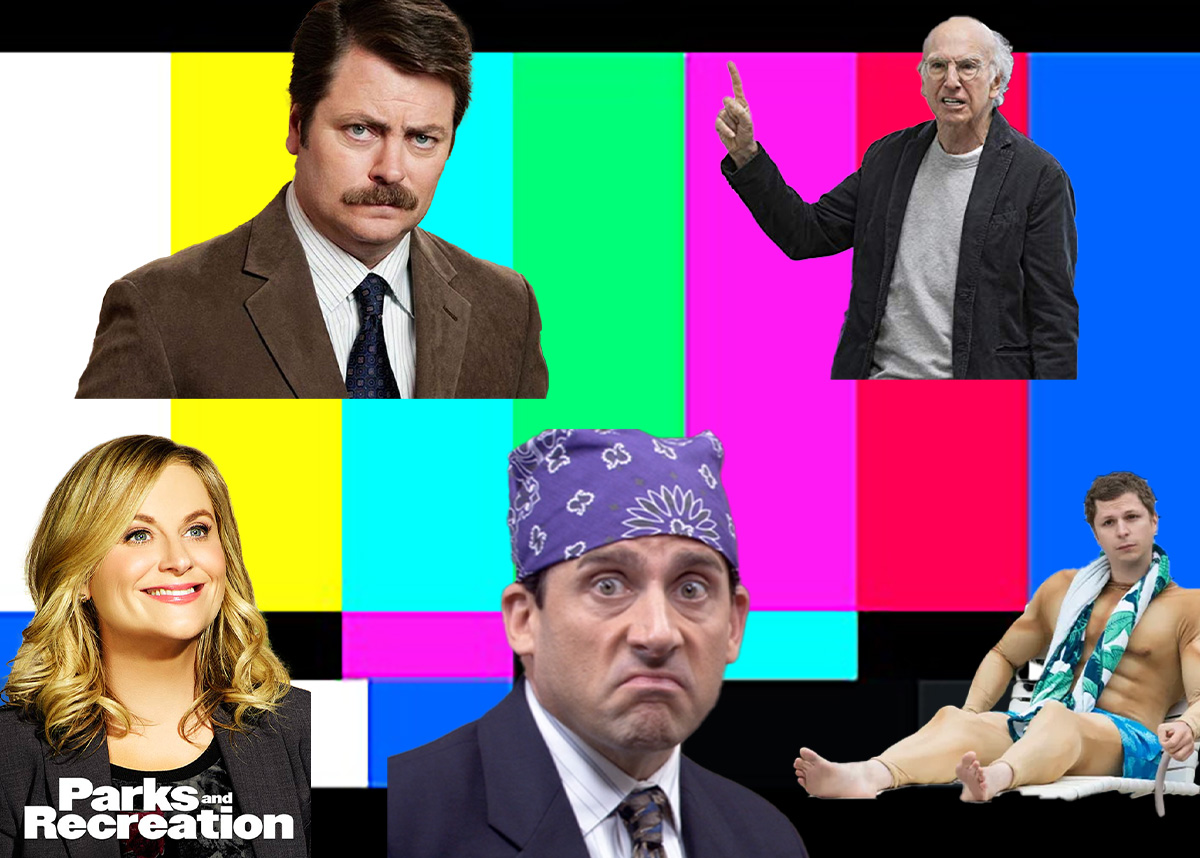The television landscape has undergone seismic shifts in recent years, with traditional sitcoms facing a notable decline. This downturn is not merely a shift in viewer preferences but signifies a broader transformation in how humor is consumed and appreciated.
The golden era of sitcoms, marked by iconic shows such as “Curb Your Enthusiasm,” “The Office,” “Parks and Recreation” and “Arrested Development,” appears to be fading, leaving industry observers and fans alike pondering the future of televised comedy.
“Curb Your Enthusiasm,” Larry David’s semi-improvisational exploration of life’s minutiae, alongside the mockumentary style and character-driven humor of “The Office” and “Parks and Recreation,” once defined television comedy. “Arrested Development,” with its intricate narratives and eccentric characters, pushed the boundaries of the sitcom format.
These shows garnered critical acclaim and a dedicated fan base and influenced a generation of writers and comedians.
However, as these series have ended or are nearing their conclusion, their successors are scarce and the once-thriving sitcom genre is declining.
Several factors contribute to the waning popularity of sitcoms. The rise of streaming services and the subsequent fragmentation of audiences have dramatically changed how people access and consume television.
With the ability to binge-watch entire series and the increased competition for viewers’ attention, traditional weekly sitcoms must help maintain a consistent audience.
Additionally, the changing landscape of humor, driven by a more diverse and socially aware audience, has shifted comedy’s tone and content.
What was once considered cutting-edge humor in shows like “The Office” might now be scrutinized more critically, challenging writers and creators to navigate a complex cultural and social terrain.
Moreover, the economic model that supported past sitcoms’ high production values and writing talent is under pressure. Once the lifeblood of network television, advertising revenues have diminished in the face of online competition.
This financial strain makes it challenging to invest in the quality that previous generations of sitcoms enjoyed, leading to a safer, often formulaic approach that fails to capture the magic of its predecessors. Comedy as a whole also appears to be in a state of flux.
The proliferation of digital platforms has democratized content creation, allowing a broader range of voices to be heard. While this has led to a renaissance in stand-up and sketch comedy, the nuanced, character-driven humor that sitcoms excel at is more challenging to find.
The immediacy and brevity preferred in the digital age often overshadow the slow-building character development and narrative arcs that classic sitcoms relied upon for humor. Despite these challenges, there is a silver lining.
The same digital platforms contributing to the sitcom’s decline have also become incubators for new forms of comedy. Shows like “Atlanta” and “Fleabag” defy traditional genre classifications, blending drama, satire, and surrealism to create something unique.
These series suggest a future where comedy evolves beyond the sitcom format, exploring new storytelling methods that resonate with contemporary audiences. In conclusion, the decline of sitcoms reflects broader shifts in the entertainment industry and societal changes in humor appreciation.
As the television landscape continues to evolve, so will the formats through which we experience comedy. The legacy of shows like “Curb Your Enthusiasm,” “The Office,” “Parks and Recreation” and “Arrested Development” will endure, serving as both a blueprint and a challenge for the next generation of comedians and creators.
The sitcom may be dying, but comedy, in its essence, is simply transforming.
Voelker can be reached at [email protected].








